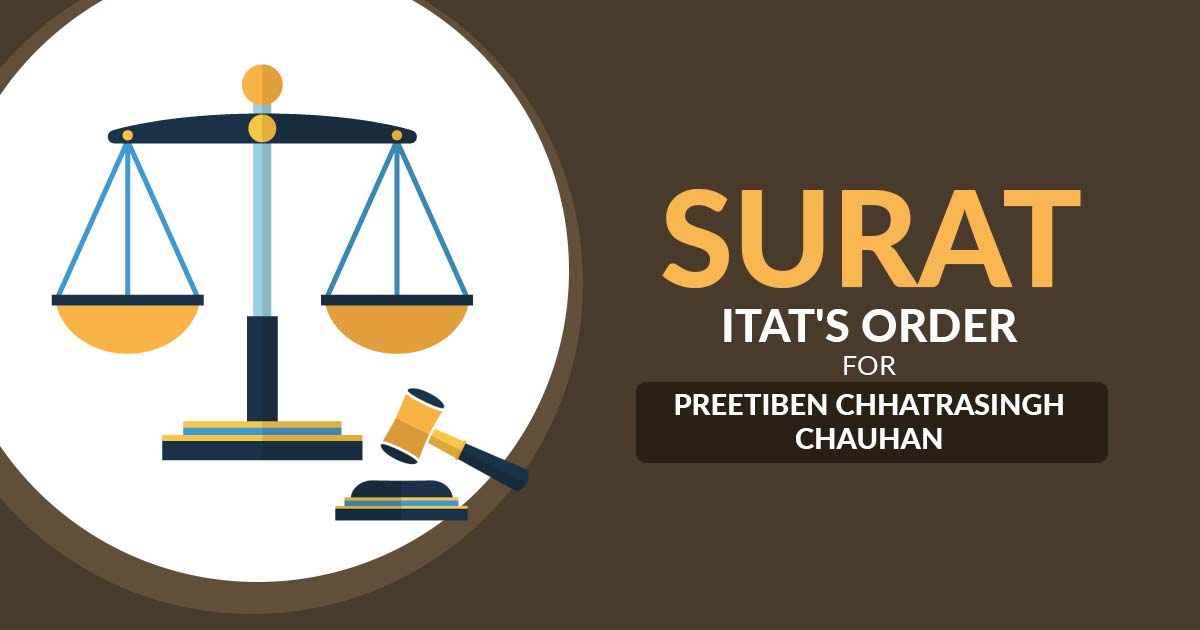
The Surat bench of the Income Tax Appellate Tribunal (ITAT) ruled that the revision order, raised by the Principal Commissioner of Income Tax (PCIT) on matters beyond the limited scrutiny, couldn’t be justified. Consequently, the tribunal invalidated the revision order.
Preetiben Chhatrasingh Chauhan, the taxpayer, generated income from various sources, including house property, business, agriculture, and other sources for the assessment year 2018-19.
The case underwent limited scrutiny due to concerns about a significant increase in introduced capital compared to the after-tax profit.
The assessment order was amended via the PCIT under Section 263 of the Income Tax Act, stating that the assessment order was wrong and prejudicial to the revenue laid on the subsequent observation: the taxpayer had represented the sale of shops and business income out of the same sale transactions.
On the sale of shops, the taxpayer claimed business income; but, in the immediately foregoing year, no stock of shops in the closing stocks was there.
Dissatisfied with the ruling, the taxpayer appealed to the tribunal. During the proceedings, counsel Hardik Vora contended that the issue raised by the PCIT in the revision process differed from the matter scrutinized initially.
The assessment under limited scrutiny primarily focused on “share capital/other capital.” Consequently, the PCIT’s raised issue fell outside the scope of the limited scrutiny and was not considered by the assessing officers, indicating an overstepping of the ‘limited scrutiny.’
On the opposing side, counsel Airiju Jaikaran for the Revenue argued that the Assessing Officer hadn’t expanded the ‘limited scrutiny’ into a ‘complete scrutiny.’ This, in turn, indicated a lack of due diligence by the Assessing Officer, making their order erroneous and detrimental to the revenue’s interests.
Upon reviewing the appeal, the Tribunal noted that the Assessing Officer’s assessment, conducted under ‘limited scrutiny,’ exclusively aimed to scrutinize ‘share capital and other capital.’
This limited scrutiny specifically targeted the ‘share capital and other capital,’ leading to the assessment order under Section 143(3) of the Income Tax Act.
Additionally, it was observed that the PCIT’s raised concerns regarding shop sales and the computation of long-term capital gains were not within the ambit of the ‘limited scrutiny.’ Hence, these issues fell beyond the scope of the initially defined ‘limited scrutiny.’
The taxpayer argued that due to the loss of instruments received as payment and the buyer’s failure to issue alternative instruments (such as checks, pay orders, or drafts), the income from the sales was not received during the relevant year.
Read Also:- ITAT: TDS U/S 194C Should Not be Applicable Due to Purchase Expenses Reported Under Head Contract Expenses
After careful examination of the evidence, the two-member bench comprising Dr A. L. Saini (Accountant Member) and Pawan Singh (Judicial Member) concluded that the order passed under Section 143(3) was neither flawed nor detrimental to the revenue.
This determination was made following a thorough examination and proper verification of all documents within the limited scrutiny’s subject matter.
| Case Title | Preetiben Chhatrasingh Chauhan V/S Principal Commissioner of Income Tax |
| Citation | ITA No.238/SRT/2023 |
| Date | 16.10.2023 |
| Assessee By | Shri Hardik Vora, Advocate |
| Respondent By | Shri Airiju Jaikaran, CIT-DR |
| Surat ITAT Order | Read Order |








